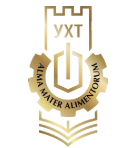Detailed introduction of the University of Food Technologies:
Introduction and Overview
The University of Food Technologies is an important institution of higher learning in Bulgaria that focuses on education and research in the field of food science and technology. The school is committed to cultivating professional talents in the food industry, covering many aspects from food processing, quality control to nutritional science, and providing intellectual support and human resources for the development of the Bulgarian and international food industry.
History and Establishment
The school was founded in 1910 and was originally a food industry school. After years of development and evolution, it has continued to deepen its roots in the field of food science and technology, and gradually developed into a comprehensive food technology university, occupying an important position in the field of food education and scientific research in Bulgaria.
School Strength
Faculty: It has a professional and experienced team of teachers, including many experts and scholars in the field of food science, technology and engineering. They not only have a deep academic background, but also have rich industry practical experience, and can provide students with high-quality teaching and guidance.
Scientific Research Achievements: It has made remarkable achievements in food science research, involving new technologies in food processing, food quality and safety, food nutrition and other fields. The school's scientific research projects are closely integrated with the actual needs of the Bulgarian and international food industries. Many research results have been widely used, promoting technological progress in the food industry.
International Cooperation: Actively carry out international exchanges and cooperation, and establish cooperative relations with many internationally renowned universities and research institutions. Through student exchange programs, joint scientific research projects and academic seminars, it promotes international academic exchanges and knowledge sharing, and enhances the school's international influence.
Nature of the institution
A public university funded by the Bulgarian government, it aims to train excellent food technology professionals for the country and promote the development of the food industry.
Educational philosophy
Aiming to cultivate high-quality talents that meet the needs of the modern food industry, it focuses on combining theory with practice. The educational philosophy emphasizes the cultivation of students' innovative ability, practical skills and ability to solve practical problems, so that students can not only master solid theoretical knowledge of food science, but also flexibly apply what they have learned in practical work to contribute to the development of the food industry. At the same time, it focuses on cultivating students' professional ethics and social responsibility to ensure that graduates can play an active role in all links of the food industry chain.
Key laboratories and disciplines
Key laboratories: The school has a number of advanced key laboratories, such as food analysis laboratories, food processing technology laboratories, food microbiology laboratories, etc. These laboratories are equipped with advanced instruments and equipment, providing good conditions for students' practical teaching and scientific research. For example, the food analysis laboratory can conduct experiments such as food component analysis and food safety testing to provide technical support for ensuring food quality and safety.
Key disciplines: Food science and engineering is the core discipline of the school, with significant advantages in food processing, food nutrition and safety, food biotechnology and other directions. In addition, disciplines such as food quality and safety, agricultural product processing and storage engineering also have a high level of teaching and scientific research, and have trained a large number of professional talents for the food industry.
Department
The school has several colleges covering multiple fields such as food science, engineering, and nutrition. Common colleges include the School of Food Engineering, the School of Food Science, and the School of Nutrition and Dietetics. Each college has multiple majors, such as food technology, food quality and safety, food nutrition and health, etc., providing students with a wealth of professional choices.
Ranking
In Bulgaria, the University of Food Technology ranks high in food-related professional fields and is an important base for talent training in the Bulgarian food industry. Internationally, although there is no widely recognized comprehensive ranking, it has a certain influence in the professional rankings in the field of food science and technology, especially in Eastern Europe.
Fees
For Bulgarian students, tuition fees are relatively low and are supported by government education subsidies. Tuition fees for international students vary according to majors and degree levels. Generally, undergraduate tuition fees are around 3,000-6,000 euros per year, and master's tuition fees may be slightly higher. The specific fees will be adjusted according to different majors and course settings.
Campus environment
Geographic location: Located in a region where the food industry in Bulgaria is relatively developed, there are many food companies and related industries around, providing students with abundant internship and practice opportunities. At the same time, the campus is surrounded by convenient transportation and complete living facilities, providing convenient conditions for students' study and life.
Campus facilities: The campus has modern teaching facilities, including teaching buildings, laboratories, libraries, student dormitories, etc. The library has a rich collection of books, covering professional books and journals in many fields such as food science, technology, nutrition, etc., providing students with good learning resources. The student dormitories are comfortable and equipped with basic living facilities to meet the daily needs of students. In addition, there are canteens, gymnasiums and other living and entertainment facilities on campus to enrich students' extracurricular life.
-
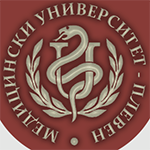
Medical University-Pleven
-

Trakia University
-

Burgas Prof. Assen Zlatarov University
-

Varna University of Management
-
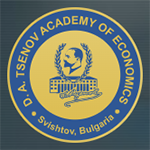
D. A. Tsenov Academy of Economics
-

Technical University - Sofia
-
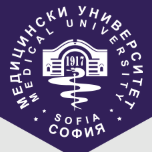
Medical University of Sofia
-

Plovdiv University
-

Sofia University
-
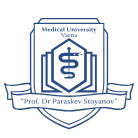
Medical University-Varna
-

Mesoamerican University
-

Istmo University
-

Mariano Galvez University of Guatemala
-

Regional University of Guatemala
-

Galileo University
-

Francisco Marroquín University
-

Rafael Landívar University
-

University of the Valley of Guatemala
-

University of San Carlos of Guatemala
-

Technological Institute of Tlaxcala Plateau
-

Golfo University
-

Technological University of South Sonora
-

Technological University of Huejotzingo
-

Tizimín Institute of Technology
-

Chilpancingo Institute of Technology

